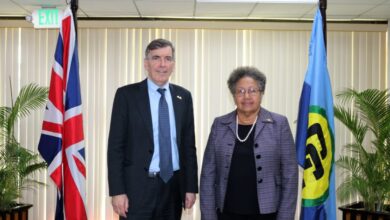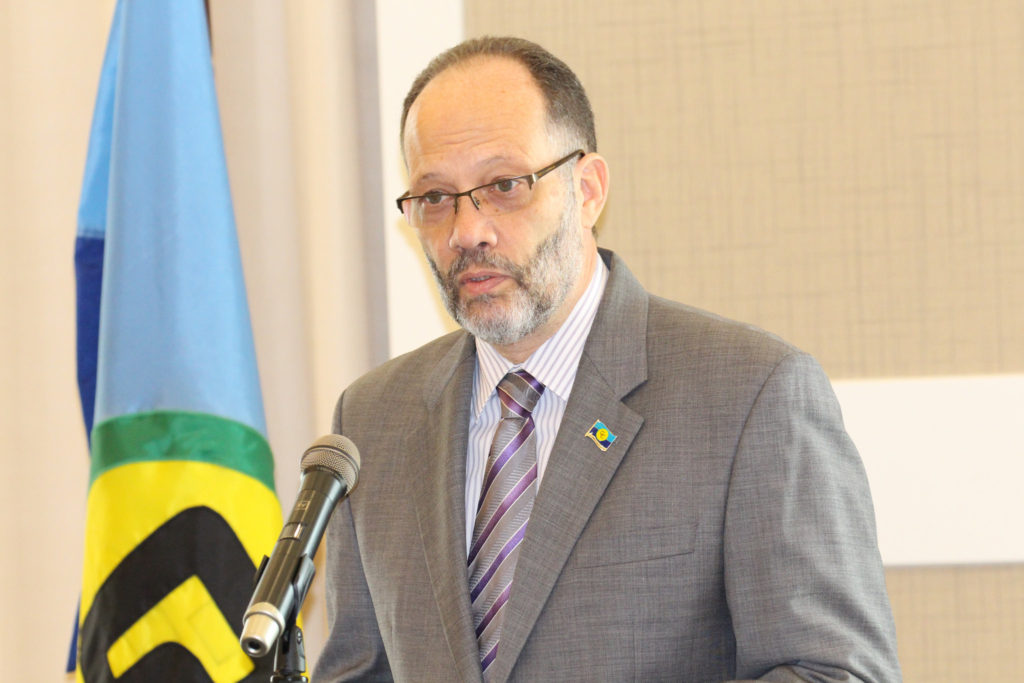The United Nations (UN) is upbeat about advancing the process to reshape policies governing access to international public finance.
Developing countries have been lobbying for a revision of current development financing policies to encompass a multi-dimensional approach as distinct from the current primary criterion of GDP per capita income.
Assistant Administrator and Director of United Nations Development Programme (UNDP) Regional Bureau for Latin America and the Caribbean, Ms. Jessica Faieta, said that there was recognition of the need to revamp the policies and that the “debate is clear”. Ms. Faieta, and representatives of the UN System, attended a CARICOM/UN Meeting at the CARICOM Secretariat in Georgetown on 24 July where discussions were held on the subject.
The challenges, as outlined by Caribbean Small Island Developing and Low Lying Coastal States (SIDS), were “important realisations”, she acknowledged. She added that the debate was now beginning to “make sense” to both Member States and international donors.
We are at a good moment and we need to move things forward… we need to be maturing in the debate,” she said.

Ms. Faieta was at the time sharing an interview with UNDP Consultant, Professor Compton Bourne who had earlier made a presentation to the Meeting on the challenges Caribbean SIDS faced in the financing for development realm. Professor Bourne, a former President of the Caribbean Development Bank (CDB) and Executive Director of the Caribbean Centre for Money and Finance, presented a case for review of eligibility criteria for access to concessionary financing.
If we were to take a multi-dimensional approach to development financing, you will find that a single element such as GDP per capita should not have such weight, should not be the basis on which one judges a country to be no longer in need of assistance, ” Professor Bourne said.
From the CARICOM point of view, urgent, consolidated and concerted effort was necessary, Professor Bourne said. He added that a position should be developed to explore the nuances of the various proposals.
CARICOM has been on a tireless crusade against the current use of per capita income as a primary criterion for concessionary financing and has been calling for alternative ways of measuring development. The alternatives would take into account the peculiar vulnerabilities of CARICOM Member States including poverty, high and rising unemployment, lack of economic resilience, susceptibility to natural disasters and substantial exposure to the effects of climate change including rising sea levels.
CARICOM Secretary-General, Ambassador Irwin LaRocque, has repeatedly brought the issue to the fore, lamenting the use of the narrow and unique criterion of per capita income to classify Member States as Middle Income Countries and thereby reducing their access to concessionary development financing. With the exception of Haiti, all CARICOM Member States have been graduated from full access to multilateral concessional financing and major development partners have adopted a similar stance.
In July alone, the Secretary-General reflected on what developing states consider an untenable situation when he addressed the Third Financing for Development Conference in Addis Ababa, Ethiopia. He zeroed in again on the subject at the CARICOM/UN Meeting where he suggested that the UNDP was well poised to coordinate the strong collaborative action that was necessary to reshape policies on concessionary financing.
I reiterate my call made in Addis Ababa … for strong collaborative action among the Development Partners, such as the UN and its Agencies, the International Financial Institutions, the OECD, and the Commonwealth, to address urgently the criteria for access to concessional financing and the issue of debt, within a strengthened FfD framework. This is most necessary in order for SIDS, including CARICOM countries, to achieve the 17 Sustainable Development Goals (SDGs) under the Post-2015 Development Agenda. I recognise the work done by the UNDP in this regard, and I am of the view that the UNDP is well poised to co-ordinate this process going forward,” the Secretary-General said.
Ms. Faieta lauded Ambassador LaRocque's efforts to place the matter frontally on the international agenda.
Pre-empting counter arguments to alternatives to concessionary financing, Professor Bourne pointed out that international donors may place on the table the financial resource limitations. An acknowledgement, however, must be made that most of donor countries were not meeting the target for international aid of 0.7 per cent of GDP that they had agreed to years ago.







